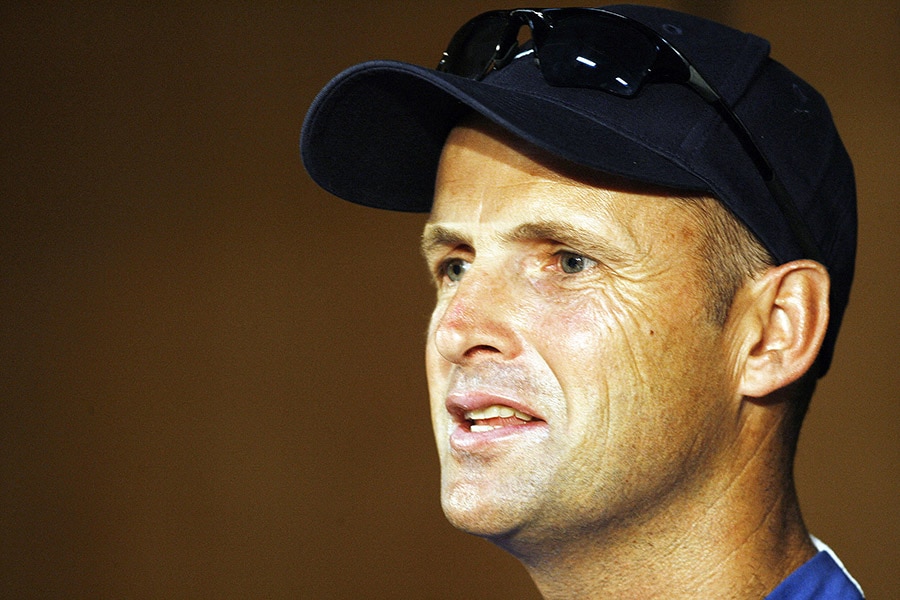
The ODI format is under threat and bilaterals have become sterile: Gary Kirsten
Gary Kirsten, the former South African batter who also coached the Indian cricket team to its last ICC ODI World Cup, on the evolution of modern-day cricket, and why the onslaught of franchise leagues and T20s might not be a bad thing
 Gary Kirsten, the former South African batter
Image: Prakash Singh/ AFP
Gary Kirsten, the former South African batter
Image: Prakash Singh/ AFP
Twelve years ago, Gary Kirsten, the former South African opening batter, coached India to an ODI World Cup title, its first in 28 years. As another edition of the storied tournament gets underway in India—“And I’m looking forward to underdogs doing well,” he says—Kirsten, who’s now a coach and a leadership maven, isn’t so sure the format will stay relevant in the next 8-10 years. With funds pouring into T20s, as also the eyeballs, ODIs might just be losing the race for survival to the youngest and the shortest international format of the game.
Speaking to Forbes India in the first episode of Sports UnLtd, the fortnightly business of sports podcast, Kirsten also predicts the preponderance of domestic franchise leagues over the international calendar. Edited excerpts from the conversation:
Q. The last time the ODI World Cup was held in India, you were the coach of the national team that won the title. What’s your most abiding memory of the 2011 edition?
I think the lasting memory was just the enjoyment and the celebration of the Indian players. There was a lot of pressure on those guys to win—just to see the smiles on their faces that they were able to achieve something very special in their home country was something that will last with me for a long time.
Q. Any particular moment that is etched in your mind as a turning point?







